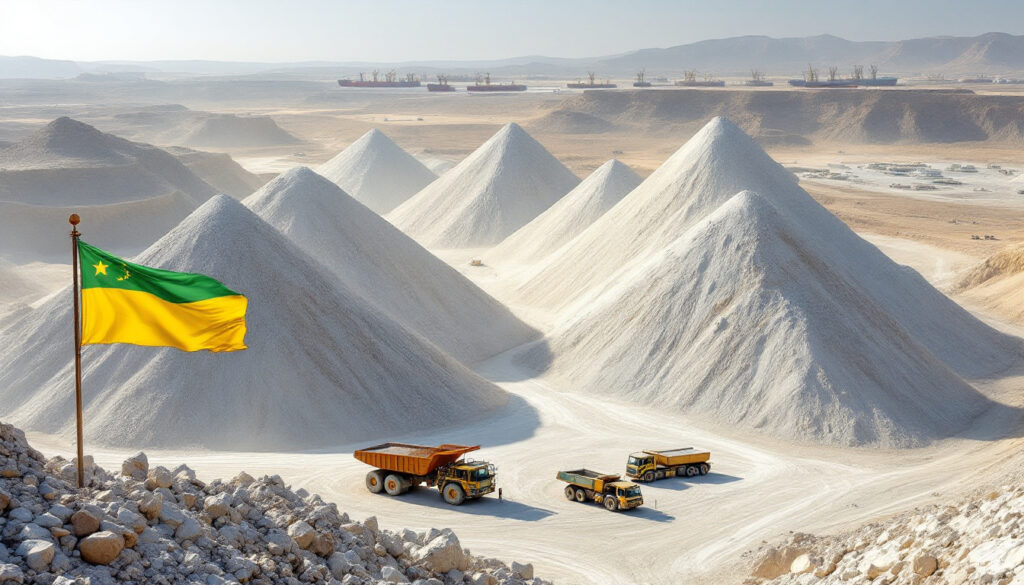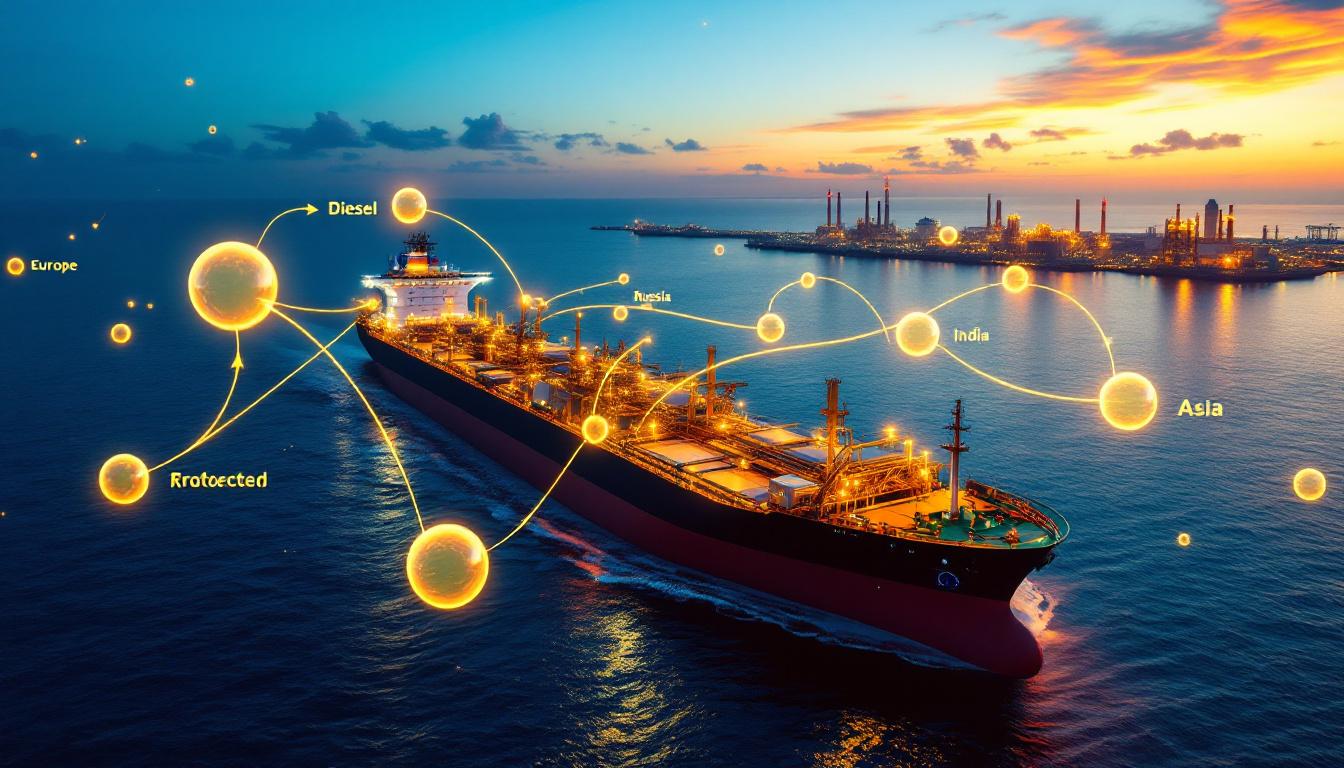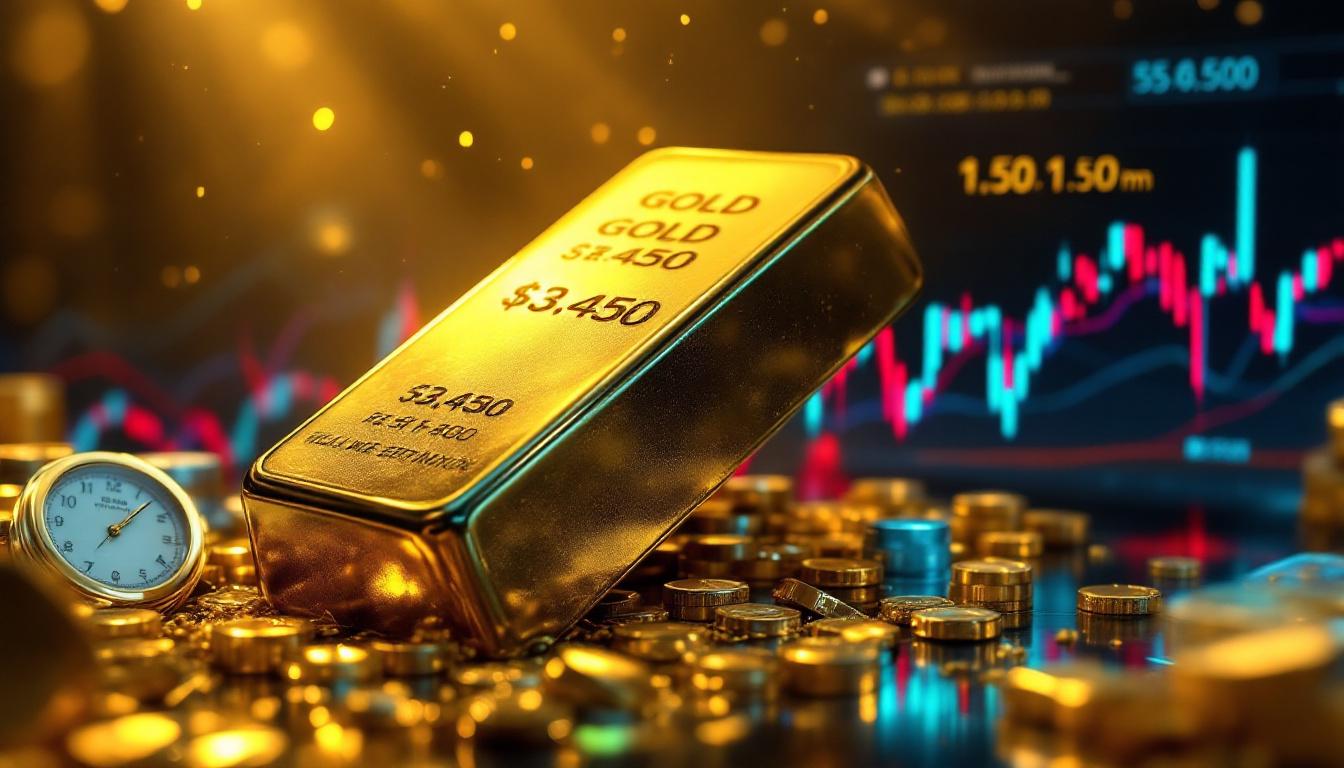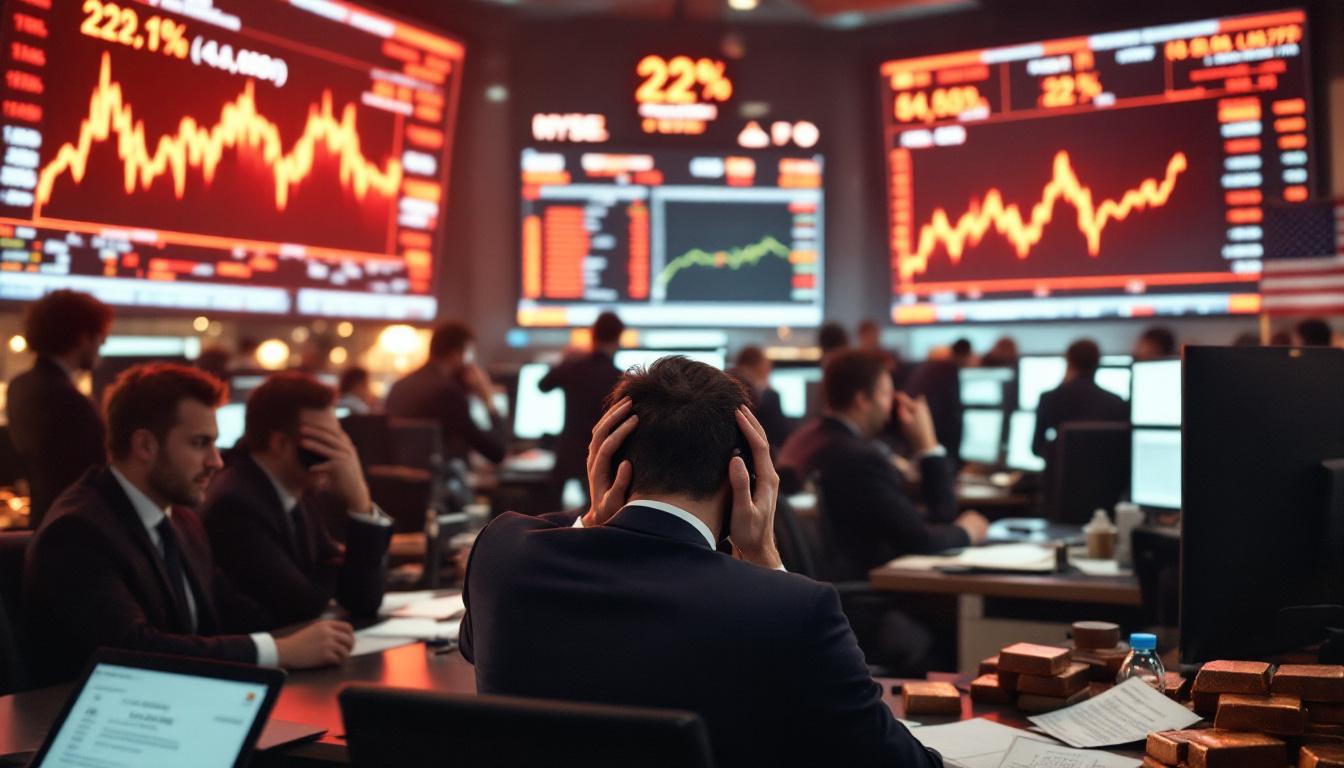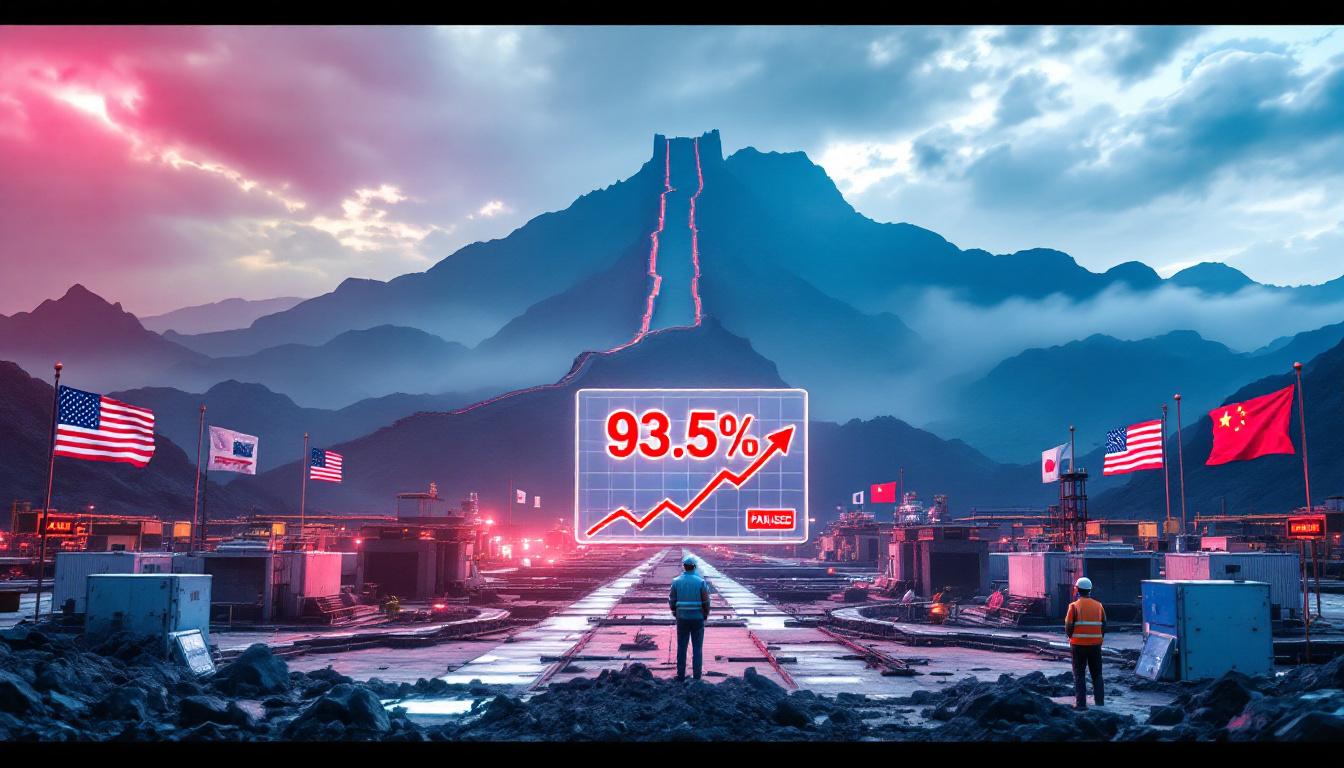What's Blocking Kodal's Lithium Exports from Mali?
Kodal Minerals, a British mining company operating in Mali, faces significant regulatory hurdles that have prevented the export of over 20,000 metric tons of lithium concentrate. Despite launching production in February 2025 at its Bougouni project and securing a buyer for its entire output, the company remains unable to ship its product due to extensive permit delays. These challenges highlight the complex regulatory environment in Mali as the country's military government seeks to maximize returns from its emerging lithium sector.
Bernard Aylward, Kodal's CEO, expressed frustration with the situation: "We're spending money to produce a product that we want to sell… Our buyer actually wants to buy it, [but] we can't export." This regulatory bottleneck has created a growing stockpile of valuable lithium concentrate with no immediate resolution in sight.
The core issue centers around Mali's authorities carefully scrutinizing the pricing mechanisms for spodumene concentrate to ensure they align with prevailing market rates. This process has extended negotiations since 2024, creating significant operational challenges for Kodal despite having a complete offtake agreement in place with China's Hainan Mining.
The Scale of the Export Blockage
- Over 20,000 metric tons of lithium concentrate currently stockpiled at the Bougouni site
- Production began in February 2025, with continuous operations despite export barriers
- Complete offtake agreement secured with China's Hainan Mining, who stands ready to purchase
- First shipment tentatively scheduled for mid-June 2025 (pending regulatory approvals)
- Daily production continues to increase the stockpile while export permits remain unresolved
How Does This Impact Global Lithium Supply?
The blocked shipments from Mali come at a critical juncture for the global lithium market, which is already experiencing significant production cutbacks worldwide. Industry analysts project that global lithium production could decrease by approximately 228,000 tons in 2025 as miners across traditional producing regions reduce operations in response to plummeting prices following the 2022-2023 supply glut.
Mali's emerging role in the lithium supply chain represents an interesting counterpoint to this trend. While established producers are scaling back, Mali is attempting to ramp up production but facing regulatory constraints that effectively create the same result – reduced supply reaching global markets.
This supply constraint, whether from intentional production cuts or regulatory bottlenecks, could eventually help stabilize the volatile lithium market. After prices crashed from over $80,000 per ton in late 2022 to around $13,000 per ton in early 2025, any reduction in available supply might help establish a price floor for this critical battery material.
Current Global Lithium Market Conditions
- Projected 228,000-ton reduction in global lithium production for 2025
- Widespread operational cutbacks across Australia, Chile, and other major producing regions
- Price collapse of over 80% from 2022 peak levels has devastated producer profitability
- Potential future price stabilization as supply constraints emerge from both production cuts and regulatory delays
- Mali's growing importance as an alternative lithium source outside traditional producing regions
Why Is Mali Scrutinizing Lithium Exports?
Mali's military government, which took power through a series of coups between 2020 and 2023, is asserting greater control over its mining sector as part of a broader strategy to increase national revenues from natural resources. This approach reflects a growing trend of resource nationalism across several African nations seeking to capture more value from their mineral wealth.
For lithium specifically, Malian authorities are closely examining pricing mechanisms to ensure the country receives fair market value in international markets. Unlike gold, which has established price benchmarks, lithium pricing is more complex and often tied to confidential supply contracts, making validation more challenging for government regulators.
As Africa's third-largest gold producer, Mali has experience with resource governance but is now extending similar oversight to critical minerals like lithium that are essential to the clean energy transition. The government views these resources as strategic national assets that should generate maximum benefit for the Malian economy and people.
Mali's Resource Governance Strategy
- Military government increasing oversight across all mining operations to ensure compliance with national interests
- Focus on maximizing revenue from natural resources through rigorous export controls
- Similar challenges reported across multiple mining operations in Mali, suggesting a systematic approach rather than targeting specific companies
- Precedent of government intervention in the gold sector, including arrests of foreign executives and seizure of gold stocks when rules were deemed violated
What Are the Specific Regulatory Hurdles?
According to Kodal CEO Bernard Aylward, Malian authorities have been meticulously scrutinizing the pricing mechanism for spodumene concentrate, the primary lithium-bearing material produced at the Bougouni project. This scrutiny aims to ensure pricing aligns with prevailing market rates, a complex task given the opaque nature of lithium contracts globally.
The process involves validating that the agreed price between Kodal and its Chinese buyer, Hainan Mining, represents fair market value rather than a potentially undervalued arrangement that could deprive Mali of appropriate tax and royalty revenues. This verification has created extended delays despite ongoing negotiations since 2024.
The technical challenge is compounded by lithium's price volatility and the variety of lithium products (spodumene concentrate, lithium carbonate, lithium hydroxide) that trade at different price points depending on purity, processing requirements, and end-use applications. For government regulators without extensive experience in lithium markets, this validation requires significant due diligence.
The Permit Process Challenges
- Negotiations for final approvals ongoing since 2024 without clear resolution timeline
- Focus on validating pricing mechanisms for lithium concentrate relative to international benchmarks
- Ensuring compliance with Mali's resource governance requirements and fair-value principles
- Similar delays reported across multiple mining operations, indicating a systemic approach to resource governance
- Technical complexity of lithium pricing creates additional verification challenges compared to more standardized commodities
How Does This Fit into Mali's Mining Sector Development?
Mali has traditionally been known as a major gold producer but is now actively seeking to diversify its mining sector by developing its significant lithium reserves. This strategic pivot positions the country to participate in the global energy transition and electric vehicle supply chain rather than remaining solely dependent on precious metals extraction.
The country currently has only two operational lithium mines: Kodal's Bougouni project and another operated by China's Ganfeng Lithium. This represents just the beginning of what could become a significant lithium production hub, provided regulatory frameworks can effectively balance investment attraction with national benefit maximization.
Mali's lithium resources are part of the larger "Lithium Belt" that stretches across several West African nations, giving the region potential to become a meaningful contributor to global supply chains. However, the current export challenges highlight the learning curve faced by regulators in effectively managing this emerging sector.
Mali's Emerging Lithium Sector
- Transition from traditional gold mining focus to critical minerals essential for clean energy technologies
- Strategic positioning to participate in the electric vehicle supply chain rather than solely exporting raw materials
- Only two operational lithium mines currently in the country (Kodal's Bougouni and Ganfeng's project)
- Potential for significant future growth if regulatory frameworks can balance investment protection with national benefit
- Learning curve for government agencies in effectively regulating a complex, relatively new commodity
What's Next for Kodal Minerals?
Kodal is working to finalize its export permit documentation with Malian authorities and hopes to send its first shipment by mid-June 2025. Despite the export challenges, the company continues to produce lithium concentrate at its Bougouni project, steadily increasing the stockpile awaiting clearance.
This situation creates significant financial strain, as the company incurs ongoing production costs while being unable to generate revenue from product sales. Storage capacity and working capital limitations could eventually force production slowdowns if the export situation remains unresolved.
Maintaining a positive relationship with buyer Hainan Mining has become crucial, as delays could potentially trigger contract complications. For now, the Chinese company appears to be maintaining the agreement despite the uncertain timeline for first deliveries.
Kodal's Path Forward
- Ongoing production despite export challenges, creating mounting stockpiles
- Finalizing export permit documentation through continued engagement with Malian authorities
- Targeting mid-June 2025 for first shipment, though this timeline depends on regulatory approvals
- Managing financial implications of production without revenue generation
- Maintaining relationship with Chinese buyer Hainan Mining despite delivery uncertainties
How Do These Challenges Compare to Other Mining Jurisdictions?
Mali's approach to mining regulation reflects a growing trend among resource-rich countries to exert greater control over their natural resources. This pattern extends beyond Mali to other African nations seeking to maximize the benefits from their mineral wealth while ensuring fair pricing and appropriate revenue capture.
The Democratic Republic of Congo implemented export restrictions and higher royalties on cobalt and copper, while Zimbabwe temporarily banned raw lithium exports entirely to encourage domestic processing. Indonesia similarly restricted nickel exports to develop local refining capacity. Mali's lithium export scrutiny follows this broader pattern of resource nationalism.
Unlike some other jurisdictions that have established clear frameworks for critical minerals, Mali appears to be developing its approach in real-time, creating uncertainty for operators like Kodal. The lack of transparent timelines and clearly defined requirements contributes to investor uncertainty in Mali's emerging lithium sector.
Regional Mining Governance Trends
- Increasing resource nationalism across multiple African countries seeking greater economic benefit from natural resources
- Focus on domestic value addition, fair pricing, and maximizing tax and royalty receipts
- Heightened scrutiny of foreign mining companies, particularly during commodity price fluctuations
- Balance between attracting investment and maximizing national benefits remains challenging
- Trend toward greater state participation in strategic mineral sectors across the continent
What Are the Implications for Battery Supply Chains?
The delays in lithium exports from Mali could have ripple effects throughout the battery supply chain, particularly as the industry faces production cutbacks globally. While Mali is not yet a major lithium producer, these challenges highlight the potential supply risks in the critical minerals sector that manufacturers must consider in their sourcing strategies.
For Chinese battery manufacturers like CATL and BYD, who dominate global production, the disruption from Mali represents just one of many supply chain challenges they must navigate. Hainan Mining, as the buyer of Kodal's production, likely intended this material for China's domestic battery supply chain, illustrating the country's strategy of securing diverse lithium sources globally.
The situation underscores the importance of supply chain resilience and diversification for battery producers and electric vehicle manufacturers. Over-reliance on any single region creates vulnerability, whether from regulatory changes, geopolitical tensions, or natural disasters affecting production. The lithium market downturn has further complicated procurement strategies for manufacturers.
Supply Chain Considerations
- Potential disruptions to battery material supply chains as regulatory hurdles delay shipments
- Increased focus on supply diversification among major manufacturers to mitigate regional risks
- Growing importance of emerging lithium producers like Mali in diversifying beyond traditional sources in Australia, Chile, and China
- Heightened attention to political and regulatory risks in resource-rich countries throughout battery materials supply chains
- Need for longer lead times and larger inventories to account for potential disruptions
These challenges arise as some countries, like India, are expanding their battery-grade lithium refining capacity to reduce dependence on China for processed materials. Furthermore, the ongoing Thacker Pass lithium case in the United States demonstrates that permit issues affect lithium projects globally, not just in emerging markets like Mali.
FAQs About Mali's Lithium Export Challenges
What is causing the export delays for Kodal Minerals?
Malian authorities are scrutinizing the pricing mechanisms for lithium concentrate to ensure the country receives fair market value for its resources. This regulatory review process has extended since 2024, preventing Kodal from exporting its production despite having a buyer ready. The complex nature of lithium pricing, which lacks the transparency of gold or other commodities, has contributed to the extended verification timeline.
How much lithium is currently blocked from export?
Over 20,000 metric tons of lithium concentrate produced at Kodal's Bougouni project cannot be exported due to permit delays. This represents the company's entire production since operations began in February 2025, creating significant storage requirements and tying up working capital that could otherwise support expansion or shareholder returns.
Who is purchasing Kodal's lithium production?
Kodal has an offtake agreement with China's Hainan Mining to purchase the entire production from the Bougouni project. This arrangement is common in the lithium industry, where Chinese companies often secure supply through direct agreements with miners to support the country's dominant position in battery manufacturing. Hainan Mining stands ready to receive shipments once export permits are granted.
Are other mining companies in Mali experiencing similar challenges?
According to Kodal CEO Bernard Aylward, other operations in Mali are also experiencing delays in obtaining export permits. This suggests a systematic approach by Malian authorities to increase oversight across the mining sector rather than issues specific to Kodal. The learning curve for regulating critical minerals appears to be affecting multiple operations throughout the country.
When might Kodal be able to export its lithium?
Kodal is finalizing its export permit documentation and hopes to make its first shipment by mid-June 2025. However, this timeline depends on receiving final approvals from Malian authorities who are continuing their pricing validation process. The lack of a transparent timeline creates ongoing uncertainty for the company and its Chinese buyer.
While some nations like Australia have implemented lithium tax breaks to stimulate production, Mali seems focused on maximizing immediate returns from its mineral resources. In other jurisdictions, initiatives like Trump's mining permits executive order aim to streamline approvals, creating regulatory advantages for producers in those regions compared to those operating in Mali.
Disclaimer: This article contains forward-looking statements regarding mining operations, regulatory approvals, and market conditions. These projections involve inherent risks and uncertainties, and actual outcomes may differ materially from those anticipated. Readers should not interpret this information as investment advice. Always conduct thorough research before making investment decisions related to mining companies or commodity markets.
Want to Be Alerted to the Next Major Lithium Discovery?
Discover critical mineral opportunities ahead of the market with Discovery Alert's proprietary Discovery IQ model, providing real-time notifications on significant ASX mineral discoveries including lithium plays. Visit the Discovery Alert discoveries page to see how early identification of major finds can generate substantial returns.
